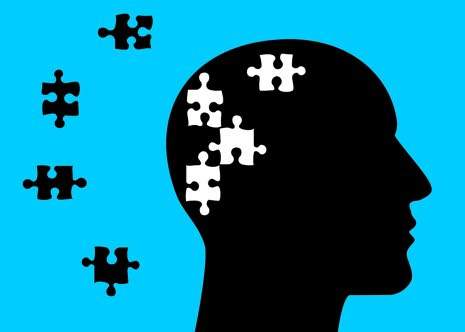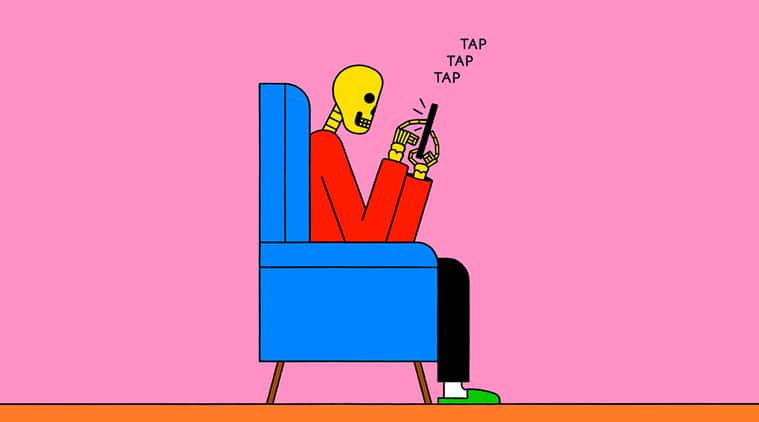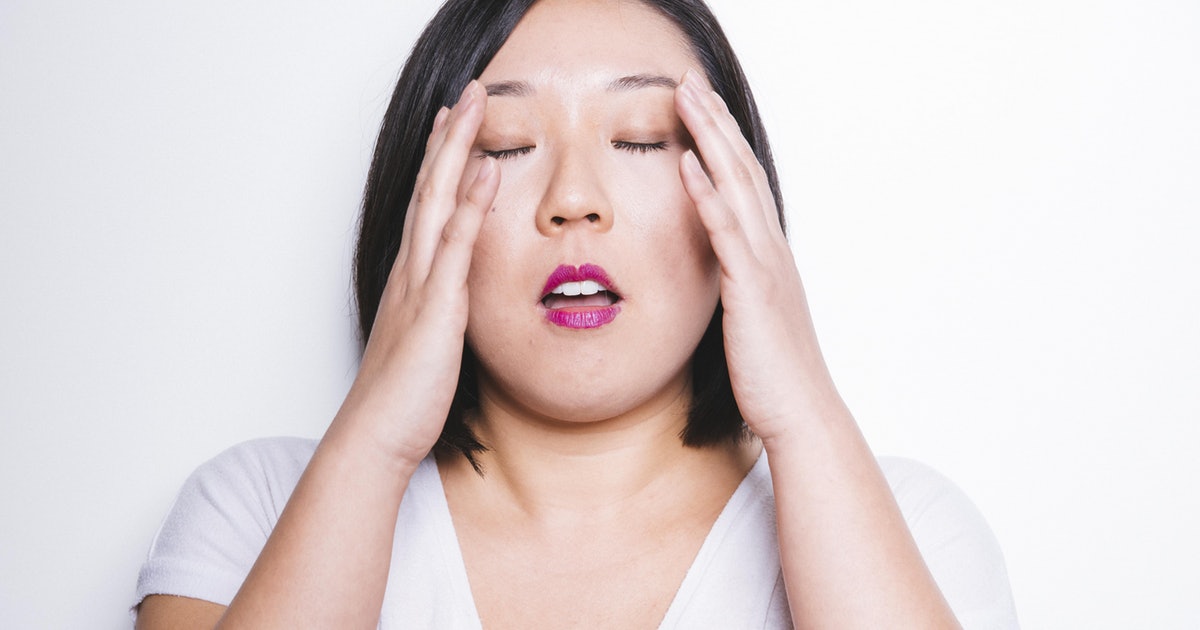Nature Knows and Psionic Success
God provides
The coming dementia: We better ‘tek sleep mark death’

In a new and alarming report, the United Nation’s World Health Organisation (WHO) has warned that the number of people living with dementia is expected to explode from approximately 50 million today to 152 million by 2050. During that same period, the number of Jamaicans over 60 years of age – the fastest growing segment of the population – is projected to double, according to the Green Paper for the National Policy for Senior Citizens (2018). Dementia is caused by a variety of brain illnesses that affect memory, thinking, behaviour and the ability to perform everyday activities. Around five to eight per cent of the world’s people over the age of 60 are afflicted with Alzheimer’s disease and other forms of dementia, WHO said. Not unusually, young people frequently pay little to no attention to what will happen to them in old age, and so make little to no provisions for the time when their health and productive years may disappear. It might be useful to remind those in the full bloom of youth of the anonymous quote: “He spent his health to gain his wealth; he spent his wealth to regain his health.” The pain of dementia cannot be exaggerated. Those who have watched previously robust and highly productive parents dwindle before their very eyes, to the point of complete non-recognition of members of their families, know too well this trauma. Besides the emotional toll, the disease inflicts a heavy economic burden on societies as a whole, with the cost of caring for people with dementia expected to rise from an estimated US$818 billion in 2015 to US$2 trillion by 2030, the WHO report said. Where Jamaica is concerned, the writing is already on the wall. In 2015, the population of people 60 years and older was 341,200 […]
Putting down your phone may help you live longer

Regular breaks can be an effective way to rebalance your body’s chemistry and regain your sense of control. A 24-hour “digital Sabbath” can be surprisingly soothing, once the initial twitchiness subsides. (Illustration: Raúl Soria/The New York Times) If you’re like many people, you may have decided that you want to spend less time staring at your phone. It’s a good idea: An increasing body of evidence suggests that the time we spend on our smartphones is interfering with our sleep, self-esteem, relationships, memory, attention spans, creativity, productivity and problem-solving and decision-making skills. But there is another reason for us to rethink our relationships with our devices. By chronically raising levels of cortisol, the body’s main stress hormone, our phones may be threatening our health and shortening our lives. Until now, most discussions of phones’ biochemical effects have focused on dopamine, a brain chemical that helps us form habits — and addictions. Like slot machines, smartphones and apps are explicitly designed to trigger dopamine’s release, with the goal of making our devices difficult to put down. This manipulation of our dopamine systems is why many experts believe that we are developing behavioral addictions to our phones. But our phones’ effects on cortisol are potentially even more alarming. Cortisol is our primary fight-or-flight hormone. Its release triggers physiological changes, such as spikes in blood pressure, heart rate and blood sugar, that help us react to and survive acute physical threats. These effects can be lifesaving if you are actually in physical danger — like, say, you’re being charged by a bull. But our bodies also release cortisol in response to emotional stressors where an increased heart rate isn’t going to do much good, such as checking your phone to find an angry email from your boss. 4 Hours a Day If […]
Is There Such A Thing As The Limitless Pill?

Originally posted on https://www.nutragy.ca/is-there-such-a-thing-as-the-limitless-pill/ Someone who has seen or heard of the movie “Limitless” may wonder if a “limitless” type pill exists. Many have asked the question, what exactly is a limitless pill? For those of you who have not seen the movie “Limitless,” (we recommend watching it) the lead actor Bradley Cooper develops abilities which are superhuman whenever he consumes the synthetic “smart drug” called NZT-48. His IQ increases to a staggering four-digit number, his cognitive abilities are improved to inhuman heights, and he displays increases in ambition and drive. The power of his brain increases so rapidly that he becomes fluent in any languages just by listening to others speak in said languages. He is also able to remember all his experiences from the past, easily recollecting all of his early childhood memories, and makes enormous profits outperforming the stock market. However this pill unfortunately also had its associated adverse side effects. Using this smart drug caused the character to blackout for several hours and sometimes days, and if he stopped using it, it could cause death. Does The Limitless Pill Truly Exist? Many people would like to find out if the limitless pills are real. The limitless tablet which was called NZT-48 in the movie is only a fictional supplement which was created by the scriptwriters of Hollywood who wanted a unique storyline for promoting their film. In real life, there is no similar pill or drug available for sale at pharmacies or elsewhere which could enhance the user’s performance to that extent. While many vendors claim to sell similar miracle drugs online, internet users should be aware that these are all false claims. No one can purchase a limitless pill either in person from a pharmacy or online from a website. However, for people interested […]
13 Little Things You Can Do Every Day To Improve Your Brain Health

If you’re interested in improving your brain health , you’re in luck. There are so many little things you can do every day to not only to feel better mentally, but to also give your brain what it needs to function at its best. And this can include simple stuff, like drinking more water, exercising, meditating — and even doing nothing . Small habits like these can all add up to a healthier brain, which is something you should prioritize. After all, "lifelong brain health matters as we get one brain for our lifetime," Dr. Krystal L. Culler, DBH, M.A., founder of Your Brain HealthMatters, LLC , tells Bustle. So the sooner you can start taking care of it, the better. "Prioritizing your brain health at a younger age can have cumulative effects as you get older," Dr. Culler says. "How you live your life and your daily choices matter to your future brain." Though, she adds, it’s never too late to start taking better care of yourself. By adding certain habits into your life, you can build up your "cognitive reserve," Dr. Culler says, which is important when it comes to combatting age-related diseases and dementia risks . "Cognitive reserve is built up throughout your lifetime through your lifestyle and daily choices," she says, "such as education and continual lifelong learning, physical exercise, sleep, meditation, and so on." Here are more things you can do every day for a healthier brain , according to experts. 1. Spend Time Meditating "Research shows that regular meditation can improve memory and concentration," Rose MacDowell, chief research officer at Sleepopolis , tells Bustle. But that’s only one reason why it can be a healthy habit to get into. Meditation has also been shown to increase the volume of gray matter in the […]
When It Comes to Sleep You Can’t Trick Mother Nature

Dena Lefkowitz If I told you that I have a product that will give you more energy, help maintain a healthy weight and improve your mood and performance at work, would you be interested? Might you pay money to get it? The good news is it’s free and within your control to get an adequate supply. The product is … Sleep. But not just any kind of sleep. I mean adequate, health-promoting sleep. If you guard this remarkable replenishing resource zealously and give your body enough, the benefits are tremendous. When “Breaking Bad” was in its original run on television, I eagerly awaited each episode. In order to enjoy it, however, I had to wait an extra day because it aired at 10 p.m. on Sunday nights. Because it was often disturbing, I couldn’t risk its startling imagery or brutal violence so close to bedtime. It was hard enough to fall asleep on a Sunday night. How are you illustrating differentiation to clients and potential lateral targets? How are you measuring performance against peers? Use Legal Compass to benchmark a firm against its competitors, unearthing unique insights about performance, partner retention, market penetration and more. Click to log in, or begin your free trial. Get More Information I thought that I was one of those people who “needed her sleep” as there have always been others in my orbit who could, seemingly, function on far less than me. In my ignorance, I thought it was a preference rather than a requirement. Two recent news stories and a conversation with an expert have shifted my understanding of the role sleep plays in our lives and convinced me that no one is immune to the effects of sleep deprivation. This past February, attorney Cameron Schladenhauffen died at age 31. The death […]
Ulrika Jonsson reveals how to stop your marriage ending in a menodivorce

Last weekend I opened my heart to readers of this paper about the terrible impact the menopause has had on my physical and mental health, and how my husband — from whom I’m now separated — seemed unable to grasp what I was going through, adding to the pressures on our relationship. I’ll admit I was nervous about that piece. I fully expected to be ridiculed for making such a fuss; that mistaking menopausal brain fog and forgetfulness for early onset dementia would be dismissed as an exaggeration made for dramatic affect. And that my upset at feeling my husband didn’t care would be scorned as ‘woe is me!’ complaining. I shouldn’t have worried. Five days on I’m still being inundated with messages from women telling me how they have suffered. Ulrika Jonsson, pictured, said she was nervous about her earlier piece on the menopause but has been inundated with messages from women telling how they have suffered Ulrika Jonsson, pictured, said she was nervous about her earlier piece on the menopause but has been inundated with messages from women telling how they have suffered Most humbling of all have been those from women who said the piece provided the impetus for them to sit down with their partner and tell him: ‘We have to talk about what the menopause is doing to me, and I need you to do more to help me through it.’ Many came from women who considered splitting from their partners because they felt so disconnected from them. ‘He thought the menopause was only about hot flushes and moodiness,’ one told me. She made him read my piece, in which I described the memory problems, anxiety, insomnia and crippling exhaustion that made life hellish. ‘Afterwards, he admitted he had no idea the symptoms could […]
Helping robots remember: Hyperdimensional computing theory could change the way AI works
Maryland research could fundamentally alter and improve the basic artificial intelligence task of sensorimotor representation — how agents like robots translate what they sense into what they do The Houston Astros’ José Altuve steps up to the plate on a 3-2 count, studies the pitcher and the situation, gets the go-ahead from third base, tracks the ball’s release, swings … and gets a single up the middle. Just another trip to the plate for the three-time American League batting champion. Could a robot get a hit in the same situation? Not likely. Altuve has honed natural reflexes, years of experience, knowledge of the pitcher’s tendencies, and an understanding of the trajectories of various pitches. What he sees, hears, and feels seamlessly combines with his brain and muscle memory to time the swing that produces the hit. The robot, on the other hand, needs to use a linkage system to slowly coordinate data from its sensors with its motor capabilities. And it can’t remember a thing. Strike three! But there may be hope for the robot. A paper by University of Maryland researchers just published in the journal Science Robotics introduces a new way of combining perception and motor commands using the so-called hyperdimensional computing theory, which could fundamentally alter and improve the basic artificial intelligence (AI) task of sensorimotor representation — how agents like robots translate what they sense into what they do. “Learning Sensorimotor Control with Neuromorphic Sensors: Toward Hyperdimensional Active Perception” was written by computer science Ph.D. students Anton Mitrokhin and Peter Sutor, Jr.; Cornelia Fermüller, an associate research scientist with the University of Maryland Institute for Advanced Computer Studies; and Computer Science Professor Yiannis Aloimonos. Mitrokhin and Sutor are advised by Aloimonos. Integration is the most important challenge facing the robotics field. A robot’s sensors and […]
6 Supplements That Can Help Improve Your Health

We all know about superfoods that supposedly improve our health , such as kale and eggs. Improving your diet is, of course, always beneficial to your health. However, there is nothing wrong with a little extra help to get on the right track. Supplements are very popular methods of getting your metabolism, immune system, and so much more on a healthier track. There are lots of different supplements out there that all claim to have varying benefits, from boosting your metabolism, to relieving anxiety, to helping hair grow. But how do you know what supplements are best? Here is a short list of some supplements that have been proven to help improve health. Haritaki Haritaki is a relatively unknown supplement, but one that provides numerous benefits. According to the breakdown on haritaki.org , the benefits of taking this as a supplement are plentiful for both the brain and the body. Some of the health benefits include cleansing the digestive tract, aiding in memory, cleansing infections, anti-aging properties, and more. One small superfood can pack a pretty heavy punch in terms of benefits. As with any supplement, discuss with your doctor, but it could be a massive help. Fish Oil Fish oil is a supplement you hear about a lot. Many people recommend eating more fish, but not everyone is a seafood fan. If you can tolerate a momentary fishy taste, this is a great health aid. It’s full of omega-3 fatty acids, which can keep blood pressure low, maintain safe triglyceride levels, and support heart function. It’s also been proven to help reduce inflammation throughout the body, so your immune system can focus on other things. Vitamin D We get some vitamin D from sun exposure, especially in the summer. We receive vitamin D after about only 15-20 minutes […]
Subtle Energy for Self-Care: Body, Mind, Heart, and Soul

What is self-care? Put simply, it’s the not-so-radical idea that one can and should take time for activities that encourage, restore, and enhance well being. Common self-care activities can be as easy as taking a walk in nature, doing daily breathing exercises, keeping a gratitude practice, or having a nice, candle-lit bath with nurturing essential oils and relaxing music. While more elaborate activities, like vacations and spa treatments, can bring a big boost to our ability to feel good, it is the little day to day things that end up making health and happiness possible in our daily lives. With the rapid pace of today’s lifestyle, it’s easy to feel like our energy is being depleted. Steady self-care practices have become an ever-growing necessity in order to give our bodies what they need to continue to perform at their best through life’s intense demands. Science and ancient cultures alike have shown that the best possible health in the body cannot happen without a healthy mental/emotional state as well. Recent studies have even proven that those with an active spiritual life also tend to fare better against stress and be more resilient against disease. Knowing this, the ideal self-care routine would bring nourishment and restoration to every level of our being. At Subtle Energy Sciences, we are aware of the important interrelation between all aspects of self; our physical body, mental state, our heart or emotional body, and our spirit; the essence of who we are. To support holistic self-care, we’ve compiled a list of 5 programs you can try for each part of your being. Most of the programs suggested below overlap between these different levels, to bring you benefit you in multiple ways. However, in this article, we are listing them in the area where they are likely […]
Helping robots remember: Hyperdimensional computing theory could change the way AI works

The Houston Astros’ José Altuve steps up to the plate on a 3-2 count, studies the pitcher and the situation, gets the go-ahead from third base, tracks the ball’s release, swings … and gets a single up the middle. Just another trip to the plate for the three-time American League batting champion. Could a robot get a hit in the same situation? Not likely. Altuve has honed natural reflexes, years of experience, knowledge of the pitcher’s tendencies, and an understanding of the trajectories of various pitches. What he sees, hears, and feels seamlessly combines with his brain and muscle memory to time the swing that produces the hit. The robot, on the other hand, needs to use a linkage system to slowly coordinate data from its sensors with its motor capabilities. And it can’t remember a thing. Strike three! But there may be hope for the robot. A paper by University of Maryland researchers just published in the journal Science Robotics introduces a new way of combining perception and motor commands using the so-called hyperdimensional computing theory, which could fundamentally alter and improve the basic artificial intelligence (AI) task of sensorimotor representation — how agents like robots translate what they sense into what they do. " Learning Sensorimotor Control with Neuromorphic Sensors: Toward Hyperdimensional Active Perception " was written by computer science Ph.D. students Anton Mitrokhin and Peter Sutor, Jr.; Cornelia Fermüller, an associate research scientist with the University of Maryland Institute for Advanced Computer Studies; and Computer Science Professor Yiannis Aloimonos. Mitrokhin and Sutor are advised by Aloimonos. Integration is the most important challenge facing the robotics field. A robot’s sensors and the actuators that move it are separate systems, linked together by a central learning mechanism that infers a needed action given sensor data, or vice versa. […]
India- Dietary Supplements Market to Seek Increased Expansion Due to Continuous Research and Development
(MENAFN – Market Research Future) Pune, India, May 2019, MRFR Press Release/- Market Research Future has Published a Half-Cooked Research Report on theGlobal Dietary Supplements Market. Market Highlights The Dietary Supplement Market has grown considerably in response to the fast-paced lifestyle that is prevalent presently. Reports that gauge the food, beverages & nutrition industry have been made available by Market Research Future which creates reports on several industry verticals that review the market growth and prospects. The market is expected to garner an encouraging CAGR in the forecast period. The shortage in the nutritional benefits of daily diets has motivated the demand for dietary supplements. Moreover, increasing health concerns have prompted individuals to use dietary supplements to avoid certain health issues. The demand for improving health and promoting healthy aging is expected to encourage the dietary supplements market in the approaching period. Browse Full Report Details @ https://www.marketresearchfuture.com/reports/dietary-supplements-market-1134 Segmental Analysis The segmental evaluation of the dietary supplements market is carried out on the basis of type, region, form, and distribution channel. Based on the type, the market for dietary supplements is segmented into minerals, vitamins, amino acids, and others. On the basis of form, the dietary supplements market is segmented into capsules, tablet, powder, liquid, and others. Based on the distribution channel, the dietary supplements market is segmented into store-based and non-store based. On the basis of region, the dietary supplements market is segmented into North America, Europe, Asia Pacific and Rest of the World. Detailed Regional Analysis The regional assessment of the dietary supplements market covers regions such as North America, Europe, Asia Pacific, and Rest of the World. As per the analysis, the North American region is governing the dietary supplements market followed by the European region. In the North American region, the U.S. market is chiefly […]
Lion’s Mane Market Precise Scenario Covering Trends, Opportunities and Growth Forecast during 2018 to 2028
Lion’s Mane Market Outlook In today’s world, the cultivation of mushrooms carry a great relevance in the context of escalating population growth and high pressure in the environment. Mushrooms have always been on the forefront due to their nutritional properties. The major mushrooms that are consumed by people in the recent decade are common mushroom, Chanterelle, Oyster, Shiitake and Lion’s mane. Lion’s mane, as the name suggests, it is a powerful super food and also brain food. Lion’s mane is a type of mushroom which has a high amount of nutritional content that can benefit human health in many ways such as improving memory, concentration, recovery from sickness and helps to serve as a rejuvenator. Lion’s mane is considered to be one of the most powerful brain foods as it can stimulate the nerve growth factors (NGF), which is responsible for the brain processing and transmission of information. Consumers are looking for different and multiple nutritional content in the food they consume which is pushing the use of Lion’s mane across several categories of food products. Hundreds of years before, Lion’s mane was used as a Chinese medicine in order to support the overall health and life longevity. Putting forth these functions of Lion’s mane, it is expected that there will be a huge market growth in the modern world. Reasons for covering this title Manufacturers and consumers have become more precise about the food that they produce and consume. The consumers prefer food which has more amount of health benefits and nutritional value over consuming multiple foods for various health benefits. Mushrooms are still consumed in large quantities in places like China. In the recent decade, mental health and brain-related diseases have become a global threat. Lion’s mane when consumed on a regular basis will help in increasing […]
Exercise more and cut down on booze to reduce dementia risk

Want to reduce your risk of dementia? Then exercise more, eat a healthier diet, and cut down on drinking alcohol. That’s what health experts at the World Health Organization (WHO) have recommended for those wanting to avoid the heartbreaking disease that contributes to the decline of brain functioning and memory loss. The WHO Guidelines on Risk Reduction of Cognitive Decline and Dementia reviewed existing evidence, and found that age was the strongest risk factor for developing the syndrome, but said it is not an inevitable consequence of ageing. Although it can’t be cured or prevented, people who take good care of themselves may have lower odds of getting it, the WHO report suggested. There are already more than 50 million people around the world with dementia, and this figure is expected to triple to over 152 million by the year 2050. Scientists have reacted by calling for more work on medicines to treat dementia, and said the WHO report clarifies what they already knew. "While age is the strongest known risk factor for cognitive decline, dementia is not a natural or inevitable consequence of ageing," the report said. A Mediterranean diet, which contains a lot of fruit and vegetables, nuts, lentils, beans and potatoes or rice, was recommended. Health experts at WHO added there was no scientific evidence that taking vitamin B, E or Omega-3 supplements would improve brain health and reduce the risk of dementia. More than 850,000 in the U.K. have dementia, and Dr Carol Routledge from Alzheimer’s Research UK, called the new report a "valuable resource". "Genetic predisposition plays an important role in many people’s risk of diseases like Alzheimer’s, and while we cannot change the genes we inherit, taking the steps outlined in this report can still help to stack the odds in our favour," […]
Five reasons why the South Downs could help boost your mental health

Amanda Elmes – learning, outdoor and volunteer lead at the South Downs National Park Authority SUS-190515-113934001 The South Downs National Park Authority (SDPNA) is encouraging people to get out and enjoy nature as part of Mental Health Awareness Week (May 13-19). Spending just one hour a week outdoors and enjoying the landscape can make a positive difference to reducing stress, according to the SDNPA. Spending time outdoors can reduce stress according to the South Downs National Park Authority SUS-190515-113945001 Learning, outdoor and volunteer lead for the SDNPA, Amanda Elmes, said: “The National Park was designated for the nation for a very good reason – it’s such a special place with breathtaking landscape and wildlife. “Whether it’s walking a section of the South Downs Way and soaking up the wide open views, or a family cycle ride in the woods, getting outdoors is proven to reduce stress and generally promote a feeling of happiness. “Many people think that a visit to the National Park needs to be a day-out or involve vigorous exercise, but it could simply be an hour-long gentle walk at one of our many beauty spots. “With 117,000 people living in the National Park and more than two million people living within 10km, I would urge people to make the most of this incredible natural remedy.” | READ MORE: South Downs National Park photo competition: How you could win £250 | Here are Amanda’s five reasons why the South Downs is good for boosting mental health: 1. Going for a walk releases feel-good chemicals A walk in the countryside builds up cardiovascular fitness and releases the feel-good chemical in the brain, serotonin. If walking with your dog, be sure to keep it on a lead. 2. Forest bathing reduces stress The National Park is a treasure trove […]
5 Healing herbs and supplements that can help ease anxiety and boost thyroid health

( Natural News ) One of the reasons why you feel anxious and sick is because you have too much of the stress hormone cortisol — which can wreak havoc on your thyroid and increase the risk of various health problems like anxiety. Here are some herbs and supplements that can regulate your cortisol levels . Valerian root: Valerian root is used in herbal medicine for its ability to induce sleep. It works by regulating neurotransmitters in the brain and reducing anxiety and insomnia caused by stress. This herb is not habit-forming and can help address many types of sleep issues, such as poor sleep quality. (Related: Optimal Levels of Cortisol, Insulin and Thyroid are Essential to Vibrant Health .) Lavender: Using lavender essential oil in aromatherapy can help regulate your stress levels. The scent of lavender has a calming effect. A study published in the journal Early Human Development suggested that the scent of lavender essential oil promotes sleep and reduces stress . In the study, researchers bathed infants with or without lavender-scented bath oil. The mothers in the lavender bath oil group were more relaxed and smiled and touched their infants more during the bath. Their children looked at them a higher percentage of the bath time, cried less, and spent more time in deep sleep after the bath. In addition, the cortisol levels of both the mothers and infants in this group dramatically declined, increasing the relaxation of the mothers and their infants. Lavender aromatherapy is also safe, natural, easy, and does not interact with medication or other supplements. In addition to baths, you can also diffuse lavender essential oil in your room while you sleep or at your desk while you work. Fish oil: Fish oil supplements, which contain omega-3 fatty acids, can also help […]
Discover How MCT Oil Boosts Memory And Brain Health

Health NaturalNews.Com Natural health experts are excited about the brain-boosting benefits of medium-chain triglycerides (MCT). These fatty acids support healthy heart functions, protect against disease-causing bacteria, and regulate inflammation. Studies suggest that MCT oil could alleviate dementia, Alzheimer’s disease, and other conditions affecting brain functions. MCT oil is from coconut oil, which contains considerable amounts of a healthy fatty acid called lauric acid. But MCT oil has up to 18 times more fatty acids. It also features two different fatty acids called capric acid and caprylic acid. The carbon chain of an MCT is made up of six to 10 atoms. This range happens to be the perfect length for absorption and metabolizing, and people suffering from digestive disorders could easily digest them. Furthermore, MCTs are immediately burned as fuel for the body. They promote weight loss by reducing fat levels while also increasing the mass of lean muscles. They also improve endurance and performance during physical activity which could prevent muscle wasting. MCT oil serves as brain food that fuels the brain and makes neurotransmitters The brain uses blood sugar to power itself. If there isn’t enough glucose in the blood, the liver metabolizes body fat into ketones that serve as brain food. Ketones could be obtained from a ketogenic diet with high levels of healthy fat and low amounts of carbohydrates. But MCTs serve as an even better source of the vital brain fuel. Consuming MCT oil raises the concentration of ketones in the blood, raising the available energy in the brain by almost 10 percent. Being present in human breast milk, MCTs assists the normal development of babies’ brains. They are closely involved in the creation of most of the dopamine, serotonin, and other neurotransmitters that serve as the chemical messengers of the brain. Furthermore, MCTs […]
Eat Healthy, Exercise Regularly: WHO’s Guide to Cut Dementia Risk

With dementia cases set to soar, the World Health Organization presented its first-ever guidelines for reducing the risk, including healthy eating, regular exercise and cutting out tobacco use on 14 May. The number of people living with dementia is expected to explode from approximately 50 million today to 152 million by 2050, the WHO said in its report. "In the next 30 years, the number of people with dementia is expected to triple," WHO Director-General Tedros Adhanom Ghebreyesus said in a statement, stressing that "we need to do everything we can to reduce our risk of dementia." The UN agency said that a healthy lifestyle appeared to help keep cognitive decline at bay. The scientific evidence gathered to draw up the guidelines, Tedros said, "confirm what we have suspected for some time, that what is good for our heart, is also good for our brain." Dementia is caused by a variety of brain illnesses that affect memory, thinking, behaviour and the ability to perform everyday activities. Around five to eight percent of people over the age of 60 are afflicted with Alzheimer’s disease and other forms for dementia. The disease inflicts a heavy economic burden on societies as a whole, with the cost of caring for people with dementia expected to rise from an estimated $818 billion in 2015 to $2 trillion by the middle of this century, WHO said. The largest increase in cases over the next three decades will be seen in low- and middle-income countries where overall population growth is the highest, WHO said, warning that many healthcare systems will face significant challenges. WHO said there were a number of non-modifiable risk factors for dementia such as age and family history. But it stressed that "while age is the strongest known risk factor for cognitive decline, […]
10 Principles of Beautiful Photography

by Trey Ratcliff – note: this article appeared in Smashing Magazine . The backside of the Taj during a summer sunset Introduction A camera does not work like an eye; memory does not work like film. There is a fine line between a photo that is quite nice and one that is quite breathtaking. At some undefined point, a photo can cross the Rubicon and be forever a piece of beautiful art. That hinterland between a regular photo and evocative art is a moving target from person to person and taste to taste. However, that zone of wonderment can be narrowed a bit once you start to consider about the way the brain stores memories and emotions. And, yes, it gets a bit touchy-feely here to determine if you have been able to cross that line. With rigorous practice and peer feedback, you can start to appreciate where that zone is and consequently improve your hit ratio. The good news is that it does not require rune rites of scapulimancy to divine your way to a more beautiful photo. There are some basic things and mantras to keep in mind as you practice and fail then practice and succeed then practice and fail and then rinse and repeat. I’ll detail a few of these below. Swallowing the Ruins – a remote temple of Angkor Wat in Cambodia 1) Think about the brain I’ve always thought about photography differently. I grew up only seeing out of one eye, thanks to several botched surgeries in the 1970’s, when the state of the art was refurbished archaeological tools of Australopithecus medicine men. When you see out of one eye your whole life and then start using a camera in your mid 30’s for the first time, something happens to you! You come […]
Breaking news: Eating at the wrong time increases your risk of certain types of cancer

( Natural News ) Eating organic foods free of glyphosate is one of the best ways to reduce the risk of cancer. However, a recent study by Spanish researchers revealed that eating a meal at the right time may be more important in preventing the onset of certain cancers. The research team from the Barcelona Institute for Global Health (ISGlobal) examined the link between circadian rhythm – physiological processes that take place within a living organism in the span of 24 hours – and cancer. They found that the timing of meals has a significant influence on cancer risk. Their study involved 1,205 breast cancer patients, 621 prostate cancer patients, 1,321 healthy women, and 872 healthy men. The healthy male and female participants did not work night shifts – they served as the control group. (Related: Use extra virgin olive oil regularly to lower your breast cancer risk, study finds .) To avoid cancer, eat dinner early and wait for two hours before going to bed The ISGlobal researchers conducted individual interviews and gave each participant a questionnaire. They gathered information on the sleeping and eating habits of the participants. They also took note of risk factors for cancer that could be linked to the circadian rhythm. All participants confirmed that they took breakfast, lunch, and dinner. One out of every three participants ate snacks in the afternoon while 7 percent of them enjoyed a snack after dinner. The interviews and surveys showed that participants who went to sleep two hours after eating dinner had a 20 percent lesser risk of developing breast cancer and prostate cancer. Furthermore, people who ate their last meal of the day before 9:00 P.M. displayed a lower risk of cancer than participants who had dinner or an evening snack after 10:00 P.M. The […]
12 Science-Backed Ways to Improve Your Mood Right Now

Your morning commute was atrocious. You got into an argument with your spouse. Your kid threw a temper tantrum of epic proportions. You’re stressed over a project at work. Whatever the reason — or combination of reasons — you’re in a bad mood. Don’t you wish there was a quick way to just snap out of it already? As it turns out, there are several ways you can trick yourself into having a better day and improving your mood on the spot. Here are a dozen simple, science-backed and expert-approved strategies for improving your mood each and every day. 1. Set the right tone for your day. Jason Raynor , a Nike Master Trainer and JW Fit Squad leader at JW Marriott Chicago , stresses the importance of having a morning routine that will provide a “solid anchor” for your day. “Do something that works for you to get your mind in a good place before the craziness of the day begins,” he says. “I encourage my clients to practice breath work, meditate, or give themselves positive affirmations by way of a gratitude journal.” This doesn’t have to be time consuming: It could be a 10-minute yoga flow session or going for a run or walk around the block, Raynor says. Having a simple routine like this will set the right tone for your day, and elevate your mood, he says. 2. Wish others well. Here’s an easy trick the next time you want to boost your mood and reduce anxiety: simply wish others well. You don’t even need to say it out loud. Just looking at others and genuinely thinking “I wish for this person to be happy” is a research-backed way to improve your own well being and mood, according to a March 2019 study from researchers […]
